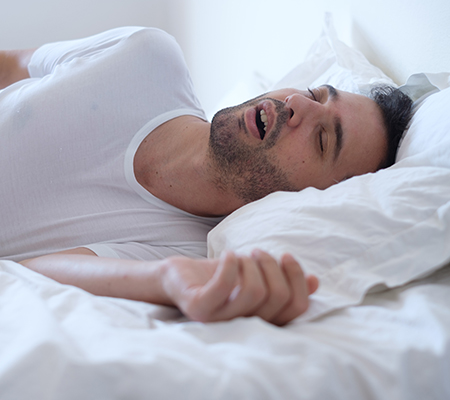
If you work nights, sticking to a sleep routine and creating a good sleep environment can make it easier to snooze during the day.
Working night shift can seriously disrupt your circadian rhythm, or the internal clock that tells most people to sleep at night and stay awake during the day.
Some people easily adjust to being nocturnal. Others have a hard time sleeping during the day and staying awake at night, and they’re perpetually cranky no matter how long they’ve worked nights.
If the second description sounds like you, these tips may help you get some rest.
Develop a routine
“Maintaining a consistent sleep-wake pattern is the most important thing you can do to adjust to night shift,” said Kelly Aue, a Marshfield Clinic sleep medicine nurse practitioner. “Try to keep the same sleep pattern on workdays and days off.”
Consistency can be difficult, especially if you work split shifts or want to socialize with family and friends. Switching your sleep schedule on days off is tempting.
Try to sleep until early afternoon on your days off so you can spend some daylight hours with family and friends. Take a nap later in the afternoon so you stay awake most of the night like you do on workdays.
Create good environments for sleeping and being awake
Make sure your bedroom is dark so you can fall asleep when you get home from work. Use a sleep mask or blackout shades to trick your body into thinking it’s dark. Some people benefit from soft music or a white noise machine as they try to fall asleep.
Keep a light therapy lamp at your workstation to help you stay awake at night. Expose your skin to natural sunlight during afternoon waking hours to get the vitamin D you need for a better mood.
Eat a balanced diet for energy to perform well when you’re awake, but don’t eat a big meal before trying to go to sleep.
Avoid caffeine the last few hours of your shift so you’re ready to sleep when you finish work. Some people turn to alcohol as a sleep aid, but it doesn’t promote restful slumber.
Try to steer clear of TVs, computers and cellphones before bedtime, and don’t bring your cellphone to bed with you.
Make exercise a regular part of your life. Physical activity helps you feel alert when you’re supposed to be awake and tired when you’re supposed to sleep.
See a doctor if you’re having trouble sleeping
Some night shift workers don’t feel well rested despite their best efforts to improve sleep habits. If that’s the case and you can’t change shifts, talk to your doctor.
Taking melatonin an hour or two before bedtime may improve sleep. You may need a prescription sleep aid, which should be used with caution and only according to your doctor’s recommendations.
Your doctor may recommend relaxation techniques like deep, slow breathing or progressive relaxation to help you fall asleep.
“It’s very important to get the best sleep you can,” Aue said. “Lack of sleep is hard on every body system and can increase your chances of heart attack and stroke.”
Related Shine365 posts
Health effects of sleep deprivation add up
Trouble falling asleep? How to adjust


I worked night shift for 13+ years…now I can't do a normal day/night life in retirement. HELP!!!
Hi, Joanne. We suggest talking to your primary care provider for specific medical advice related to your sleep habits. Your provider is most familiar with your medical history and current conditions, therefore, can provide the best advice unique to you.
In the meantime, you may find these other sleep articles helpful:
Trouble falling asleep? How to adjust: https://shine365.marshfieldclinic.org/wellness/trouble-falling-asleep-and-how-to-adjust/
6 tips for better sleep: https://shine365.marshfieldclinic.org/wellness/better-sleep-infographic/
Tired after a full night's sleep? 3 reasons why: https://shine365.marshfieldclinic.org/wellness/tired-after-sleep/
We have many more sleep articles here: https://shine365.marshfieldclinic.org/tag/sleep/
-Kirstie